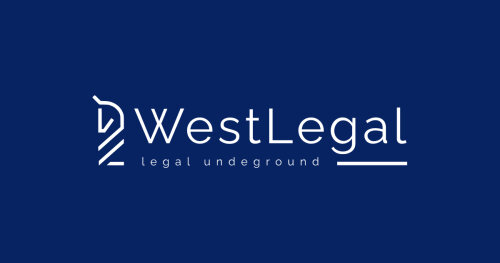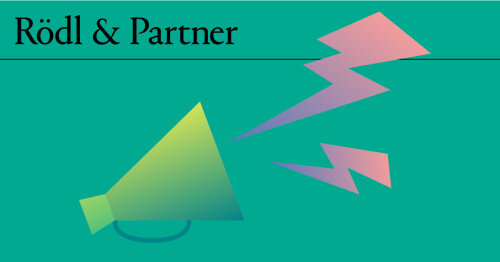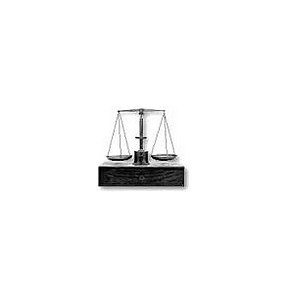Best Sanctions & Export Controls Lawyers in Tallinn
Share your needs with us, get contacted by law firms.
Free. Takes 2 min.
List of the best lawyers in Tallinn, Estonia
About Sanctions & Export Controls Law in Tallinn, Estonia
Sanctions and export controls law in Tallinn, Estonia manages the legal framework for the movement of goods, services, and technology across borders, and restricts dealings with certain countries, individuals, or entities. Estonia, as a member of the European Union and a participant in various international agreements, implements both EU-level and national regulations for sanctions and export controls. The main objectives are to protect national and international security, prevent terrorism, and comply with international obligations. Companies and individuals operating in Estonia must ensure they follow these regulations when trading across borders or dealing with sanctioned parties.
Why You May Need a Lawyer
Legal assistance is often necessary when navigating the complex areas of sanctions and export controls. Common situations where a lawyer’s help is crucial include:
- Planning to export goods or services to countries with restrictions or embargoes
- Uncertainty about dual-use items, which have both civil and military applications
- Facing an investigation by authorities for potential breaches of export controls or sanctions
- Dealing with frozen assets or blocked transactions linked to sanctioned individuals or entities
- Complex supply chains involving multiple jurisdictions or parties
- Potential mergers or acquisitions involving entities subject to restrictions
- Risk of reputational harm due to inadvertent sanctions violations
- Needing up-to-date compliance training for staff working in export-sensitive roles
A specialized lawyer can help you interpret and comply with evolving regulations, avoid costly mistakes, and ensure you are protected if disputes arise.
Local Laws Overview
Estonian sanctions and export controls law is primarily based on European Union regulations, which apply directly in Tallinn and throughout Estonia. These laws impose various restrictions on specific goods, technologies, and financial transactions involving certain countries, regimes, or listed individuals. Estonia also implements United Nations Security Council sanctions through domestic law.
The key aspects of sanctions and export controls law in Estonia include:
- EU Sanctions: Applicable to all persons and businesses in Estonia, these cover areas such as embargoes on goods, services, and technology transfers, as well as asset freezes and travel bans.
- National Implementation: The Estonian government is responsible for enforcing EU and UN sanctions and may introduce additional national measures in certain cases.
- Export Control of Dual-Use Items: Goods and technology with both civilian and military applications require special authorization for export outside the European Union.
- Licensing and Compliance: Companies must apply for licenses from the Estonian Strategic Goods Commission (Strateegilise Kauba Komisjoni) for controlled exports.
- Criminal and Administrative Liability: Violations of sanctions or export control rules can lead to heavy fines or criminal prosecution.
- Regular Updates: The list of sanctioned entities and countries is regularly updated, so continuous monitoring is necessary for compliance.
Frequently Asked Questions
What are sanctions, and how do they apply in Estonia?
Sanctions are legal measures that limit or prohibit trade, financial transactions, or other activities with specified countries, groups, or individuals. In Estonia, sanctions are primarily based on EU regulations and must be followed by all companies and individuals.
How can I find out if a country or person is subject to sanctions?
Sanctions lists are maintained by the European Union and published online. Estonia adopts these directly, so checking the latest EU sanctions lists is the best way to confirm whether a party is subject to restrictions.
Do all exports from Estonia require an export control license?
Not all exports require a license. Only certain goods, known as dual-use items or goods on control lists, need an export license. It is important to review whether your product appears on the list before exporting.
What are dual-use goods?
Dual-use goods are items or technologies which can be used for both civilian and military purposes. Exporting these from Estonia to countries outside the EU typically requires government authorization.
Can an Estonian company do business with a sanctioned entity?
No, conducting business with entities listed on sanctions lists is generally prohibited. Violations can result in severe penalties, both financial and criminal.
Who enforces sanctions and export controls in Estonia?
Enforcement is handled by several Estonian authorities, including the Ministry of Foreign Affairs, the Tax and Customs Board, and the Strategic Goods Commission, depending on the case.
What are the risks of violating sanctions or export controls?
Risks include significant fines, criminal charges, loss of reputation, loss of export privileges, and potential prohibition on doing business with EU institutions or partners.
What should I do if I suspect I have violated export controls?
If you think you may have breached export controls, you should immediately seek legal advice. A lawyer can help assess the situation, communicate with authorities, and mitigate potential penalties.
Does Estonia implement United Nations sanctions?
Yes, Estonia implements United Nations Security Council sanctions alongside EU measures. These are enforced through domestic legislation and are binding on all residents and businesses in the country.
How often do sanctions lists and export controls change?
Updates can occur frequently, especially in response to international events. Regular monitoring of official sources is essential to ensure ongoing compliance.
Additional Resources
For further information and guidance on sanctions and export controls in Tallinn, Estonia, these resources may be helpful:
- Estonian Ministry of Foreign Affairs: Provides information on current sanctions, official policy updates, and guidance for compliance.
- Tax and Customs Board (Maksu- ja Tolliamet): Offers details on customs regulations, export procedures, and handling of controlled goods.
- Estonian Strategic Goods Commission: Responsible for licensing and advice related to dual-use and military goods.
- European Commission Sanctions Database: The EU’s official source for consolidated sanctions lists.
- Chambers of Commerce and Industry: Can offer practical advice, training, and support regarding compliance.
Next Steps
If you believe you need legal assistance regarding sanctions and export controls in Tallinn, Estonia, consider the following steps:
- Gather as much relevant information as possible about your business’s international dealings and planned exports
- Consult the official EU and Estonian sanctions and export control lists for the most recent updates
- Contact a lawyer with proven expertise in sanctions, export controls, and customs law
- Arrange a consultation to discuss the specific details of your situation and receive tailored legal advice
- Implement recommended compliance measures within your organization to manage future risks
Professional legal guidance will help you avoid violations, manage investigations or disputes, and ensure your business remains compliant in a complicated regulatory environment.
Lawzana helps you find the best lawyers and law firms in Tallinn through a curated and pre-screened list of qualified legal professionals. Our platform offers rankings and detailed profiles of attorneys and law firms, allowing you to compare based on practice areas, including Sanctions & Export Controls, experience, and client feedback.
Each profile includes a description of the firm's areas of practice, client reviews, team members and partners, year of establishment, spoken languages, office locations, contact information, social media presence, and any published articles or resources. Most firms on our platform speak English and are experienced in both local and international legal matters.
Get a quote from top-rated law firms in Tallinn, Estonia — quickly, securely, and without unnecessary hassle.
Disclaimer:
The information provided on this page is for general informational purposes only and does not constitute legal advice. While we strive to ensure the accuracy and relevance of the content, legal information may change over time, and interpretations of the law can vary. You should always consult with a qualified legal professional for advice specific to your situation.
We disclaim all liability for actions taken or not taken based on the content of this page. If you believe any information is incorrect or outdated, please contact us, and we will review and update it where appropriate.

















